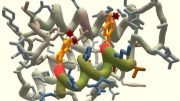
Scientists suggest that all types of boredom originate from a conflict or misdirection of attention, disrupting engagement.
Many normal situations have the potential to be unbelievably boring. Boredom is more than just one of life’s minor irritations; it has been linked to drug use, alcoholism, problematic gambling, and compulsive behavior. It has even been tied to potentially lethal errors in job execution since bored personnel perform less reliably than people engaged in their work.
There hasn’t been much done in order to determine the actual cause of boredom, which can occur in a perplexingly broad range of situations, involving both our external environment and inner resources.
After an exhaustive survey of the scientific literature, a group of psychologists from York University, Canada, proposed a new theory. The scientists will publish their findings this fall in the journal Perspectives on Psychological Science. John Eastwood, a cognitive psychologist, and his team suggest that all kinds of boredom stem from a conflict of attention or misfocused attention in a way that disrupts engagement.
In some cases, there are too many things competing for attention, whilst in others there are too few. If boredom is closely connected to the field of attention, this might pave the way to being able to deliberately manipulate boredom, and even alleviate it. The York team is now working on experimental work to test the precise connection between boredom and attention.
As a practicing clinician, Eastwood developed an interest in boredom after working with patients with chronic depression. They mentioned boredom more frequently, but there was little on it in academic research. Eastwood wondered if boredom was just another facet of depression, but he and his team established that, when quantitatively measured through psychological tests and assessments, the two states were distinct.
The scientists did discover that a common factor linked both depression and boredom. The group reviewed current literature to see if these findings held up. They found that attention seemed to be linked to boredom, whether it was or wasn’t called out explicitly in the experiments themselves. When people are unable to engage their attention in the task at hand, they start to feel bored. When tasks are too simple to require focused attention, people can’t find a suitable point of engagement and not enough effort is expended to maintain the focus on the activity at hand. Trying to process an overwhelming environment with limited attention can also make people bored because their attention is being pulled in different directions.
Understanding boredom and attention as connected has the potential to improve how we deal with both. “Because we know quite a lot about how attention operates, this information could allow us to quantify the situations that lead to boredom,” said neuroscientist Jonathan Smallwood of the Max Planck Institute for Human Cognitive and Brain Sciences.
Research indicates that once people have taken note of boredom-provoking conditions, they can get some relief by just tuning into the conflicts that are making them feel bored.
Reference: “The Unengaged Mind: Defining Boredom in Terms of Attention” by John D. Eastwood, Alexandra Frischen, Mark J. Fenske and Daniel Smilek, 5 September 2012, Perspectives on Psychological Science.
DOI: 10.1177/1745691612456044









Be the first to comment on "Curing Boredom"